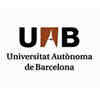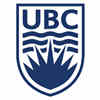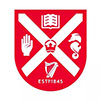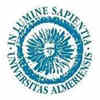瑞典生命科学实验室博士后职位
瑞典生命科学实验室博士后职位
Institutions
The interdisciplinary post doctorate position is shared between the groups of professor Love Dalen, affiliated with the Swedish Museum of Natural History and the Centre for Palaeogenetics (www.palaeogenetics.com/LD) and associate professor Marc Friedlander, affiliated with Stockholm University and SciLifeLab (www.friedlanderlab.org).
Science for Life Laboratory (SciLifeLab) is a collaboration between four universities in Stockholm and Uppsala: Stockholm University, the Karolinska Institute, the Royal Institute of Technology, and Uppsala University. The SciLifeLab is a national center for large-scale biosciences with a focus on high-throughput health and environmental research. The center combines advanced technical know-how and cutting-edge equipment with a broad knowledge in molecular biosciences.
The Centre for Palaeogenetics (CPG) is a joint venture between Stockholm University and the Swedish Museum of Natural History. The overall objective of the centre is to bring researchers from different disciplines, such as biology, archaeology and geology, together into a state-of-the-art research environment dedicated to ancient DNA analyses.
Research project
The project will focus on the discovery and characterization of RNA complements of ancient tissue samples of extinct animal species such as the woolly mammoth, with emphasis on regulatory microRNA molecules. The post doctorate position is funded by a SciLifeLab-SU grant (SU FV-5.1.2-0523-19).
Paleogenetics, the study of ancient DNA sequences, have yielded many important insights into the evolutionary history of extinct animals as well as the ancestors of present-day humans. It is now becoming clear that also RNA molecules can be preserved in ancient samples, under favoring conditions. Fragments of messenger RNAs can inform about transcriptional activity, and microRNAs – small transcripts with important gene regulatory functions – can inform about gene regulation that occurred in ancient samples. Intriguingly, microRNAs can in many cases only be annotated through the direct sequencing of the molecules, raising the possibility that microRNAs specific to extinct species may yet remain undiscovered.
The successful applicant will spearhead and coordinate this paleotranscriptomic project. Specific tasks will depend on the expertise of the applicant (wet-lab or dry-lab) but can include: field work, RNA extraction and sequencing, computational quality control and characterization of detected sequences, homology analyses, microRNA target prediction and wider interpretation of findings. The post doc will interact with experimental and computational researchers from the group, and will participate in limited co-supervision of PhD students.
The research group of Love Dalen focuses on paleogenetics, with particular emphasis on the use of DNA technology to investigate the ecology and evolution of different species, and how past environmental changes have determined the distribution and abundance of organisms. At present, the work is aimed at investigating how genetic variation, population structure and population size have changed over time, especially in the context of changes in climate during the Late Pleistocene (i.e. the last ice age). The group is currently working on several projects on different wild animals, for example lemmings, mammoths, rhinos and cave lions.
The group of Marc Friedlander focuses on profiling of RNAs from minute sample material (including mammalian single cells) and on discovering, annotating and functionally characterizing microRNAs in animal species. The group has developed miRDeep, the most widely used software for microRNA discovery, and is hosting MirGeneDB, the curated microRNA database.
Eligibility
Postdoctoral positions are appointed primarily for purposes of research. Applicants are expected to hold a Swedish doctoral degree or an equivalent degree from another country.
Selection criteria
In the appointment process, special attention will be given to research skills. We are looking for candidates with wet-lab and/or dry-lab skills in the fields of evolutionary biology, RNA biology or computational sequence analysis. Specific experience with paleogenetics or microRNA annotation constitutes an advantage, but is not necessary. The candidate must be highly motivated, creatively thinking and have a record of high-quality scientific publications. Fluency or near-fluency in English, both written and spoken, are a requisite. In summary, selection will focus on scientific excellence, with equal priority given to applicants from a wet-lab, dry-lab or ‘hybrid’ background.
Terms of Employment
This is a full-time position available immediately. The starting date is negotiable. The position is initially funded for two years, with a possibility of extension.The position constitutes full employment including all social benefits. Stockholm University strives to be a workplace free from discrimination and with equal opportunities for all.
Contact
Further information can be provided by Love Dalen, email: love.dalen@nrm.se or Marc Friedlander, email: marc.friedlander@scilifelab.se
Application
Applications should be submitted until the 31st of January using the Stockholm University web-based application system by clicking the “Apply” button at the bottom of this page: https://www.su.se/english/about/working-at-su/jobs?rmpage=job&rmjob=11001&rmlang=UK
The instructions for applicants are available at: https://www.su.se/english/about/working-at-su/instructions-applicants
You are welcome to apply!
Stockholm University – our education and research produce results.

















